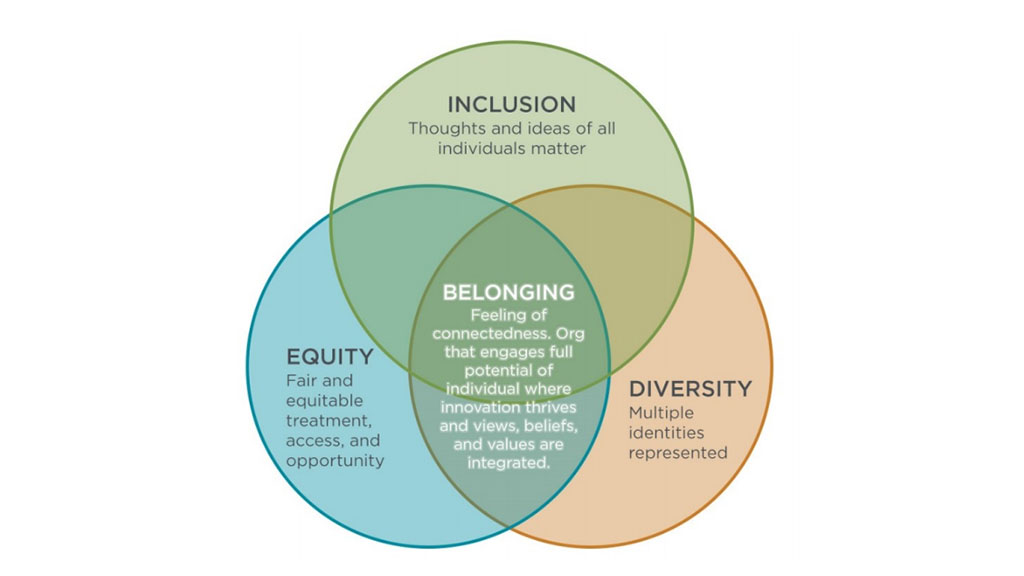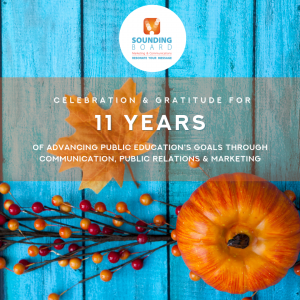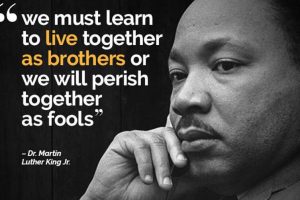 Diversity, equity and inclusion–separately and together–have become a highly trending topic in business and public education.
Diversity, equity and inclusion–separately and together–have become a highly trending topic in business and public education.
As one who studies trends and is also highly sensitive to “jumping on the trend bandwagon” instead of jumping ahead and posting my personal and business “Diversity, equity and inclusion statement” (as many have in recent years), I decided to observe what my clients are doing in this space, what I’ve always done in this space (and didn’t have a term or terms to describe it), and what businesses are doing in this space, so that I can get a better understanding of how I can best support my clients in their DEI initiatives.
Recently, I was asked about Sounding Board’s expertise is in DEI. I am highly aware that as a white, blonde, blue-eyed business owner, I don’t necessarily look the part of someone who has a strong understanding and expertise in this space. However, I do want to provide some context and background: I was born and raised in San Jose, CA, where I ultimately graduated from college and started her career working for city councilmembers in one of the most diverse cities in the nation–—gender, gender expression, race, ethnicity, age, sexual orientation, religion, disability status, socio-economic background, experience and more. These experiences provided me the opportunity to develop a strong foundation, deep respect, and cultural consciousness within the workplace and also through my work and approaches in public relations and communications.
I am constantly learning and growing in my understanding of DEI. I constantly find myself in a very humbling position where my assumptions and understanding are always being tested–something I embrace with deep gratitude. As one who works with educators, my hope is that my openness and ever-evolving learning, quest for deepened wisdom and understanding is welcomed. It is for these reasons that I will not claim myself as a DEI expert. To be clear: I am a communication, PR and marketing expert who uses best practices in my industry while infusing DEI standards into my work. There are a number of deeply talented, experienced and educated individuals who have dedicated their careers to this space, well-before this became a focus point for many organizations. I have a deep regard and respect for their research, knowledge and experience, and will readily refer clients to them if they need this expertise.
The DEI standards to which Sounding Board itself to when approaching client communications include:
- We embrace the diversity of our clients’ employees, families and communities;
- We will ensure that our client’s strategies will include fair and equitable treatment, access, opportunity, and engagement for all and will create an environment that respects and values all perspectives, especially ensuring that persons within historically underrepresented groups are included and represented;
- We use the most effective and culturally-relevant approaches to best reach all of our clients’ communities and families, including the hardest to reach individuals, who may not have access to or respond best to technology;
- We communicate and deliver communications in culturally-relevant and accessible ways; and
- We incorporate and reflect the diversity and values of our clients’ communities and families through our communications.
Every one of our communications that we create for our clients must incorporate these standards, and we only work with contractors who abide by these same standards. These standards will evolve with my understanding and knowledge.
Relevant Work in DEI
Sounding Board’s involvement in clients’ DEI initiatives include creating and manage the development of district reports, presentations, video, social media and website content and media relations to promote and communicate the progress and impact that school district clients are making in the areas of mental health, diversity, equity and inclusion initiatives, including:
- Robla School District’s Resilience Program;
- Oroville Union High School District’s reduction in the suspensions and expulsions of students of color;
- Murrieta Valley Unified School District’s approaches to communicating employees’ gender identity changes; and
- Redwood City School District’s approach to increasing the diversity, inclusion and equity in restructuring a school for gifted students.
Each of these initiatives require incremental, long-term approaches that create impact and change.


